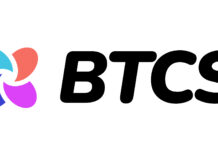The idea of a ‘single token’ could not be realized with the Ethereum Request for Comments 20 standard (ERC-20) which is used by the tokens distributed in ICOs, under which all the tokens are identical. This has led to the development of the Non-Fungible Tokens (NFT), or single token, under the ERC-721 standard, where its main and innovative characteristic is that they are not consumed.
The NFT ERC-721 was popularized by the game Cryptokitties, but its utility goes beyond the decentralized games of collectible characters. OpenLaw, a blockchain firm that works with ConseSys, proposes using the ERC-721 token to carry out transfers of houses, land and other ‘tokenized’ properties through smart contracts in the Ethereum blockchain.
In the initiative of ConseSys and OpenLaw, the attributes of the NFT will be used to allow buyers and sellers of real estate to store property records in the Ethereum blockchain. This new feature will allow the property purchase process to be executed in an intelligent contract, with the actions planned for each of the parties involved: the seller, the buyer, the real estate agent, the authorities and the legal representatives. Historical property transactions may be stored in some cases, depending on the legislation.
OpenLaw began the deployment of its protocol in Australia. Under property law in Australia, when the transfer of a property title is registered, ownership is transferred, creating a new property title and the act of registration at the same time. This feature ensures a smoother transition to a blockchain-based property register.
The transfer of real property on Ethereum is rapidly coming into focus (check it out below). ERC-721 tokens + OpenLaw is a powerful combination.https://t.co/eRXRSh3O63
— Tribute Labs (@tributelabsxyz) April 27, 2018
In some legislation, the registration made in a sale does not assure the transfer of the property, since it is up to the buyer to ensure if the property really belongs to the seller or if he is authorized to sell in the case that it is a joint property. This implies that a prior investigation of the history of transactions involving the property must be made to avoid scams or to take expensive insurance policies that cover the buyer in case of problems.
Given this legal situation, blockchain technology is a viable solution to solve these problems because it would have the history of transactions stored on the blockchain, providing a source of additional innovation and taking advantage of one of the many possibilities that the ERC-721 standard can contribute.
















